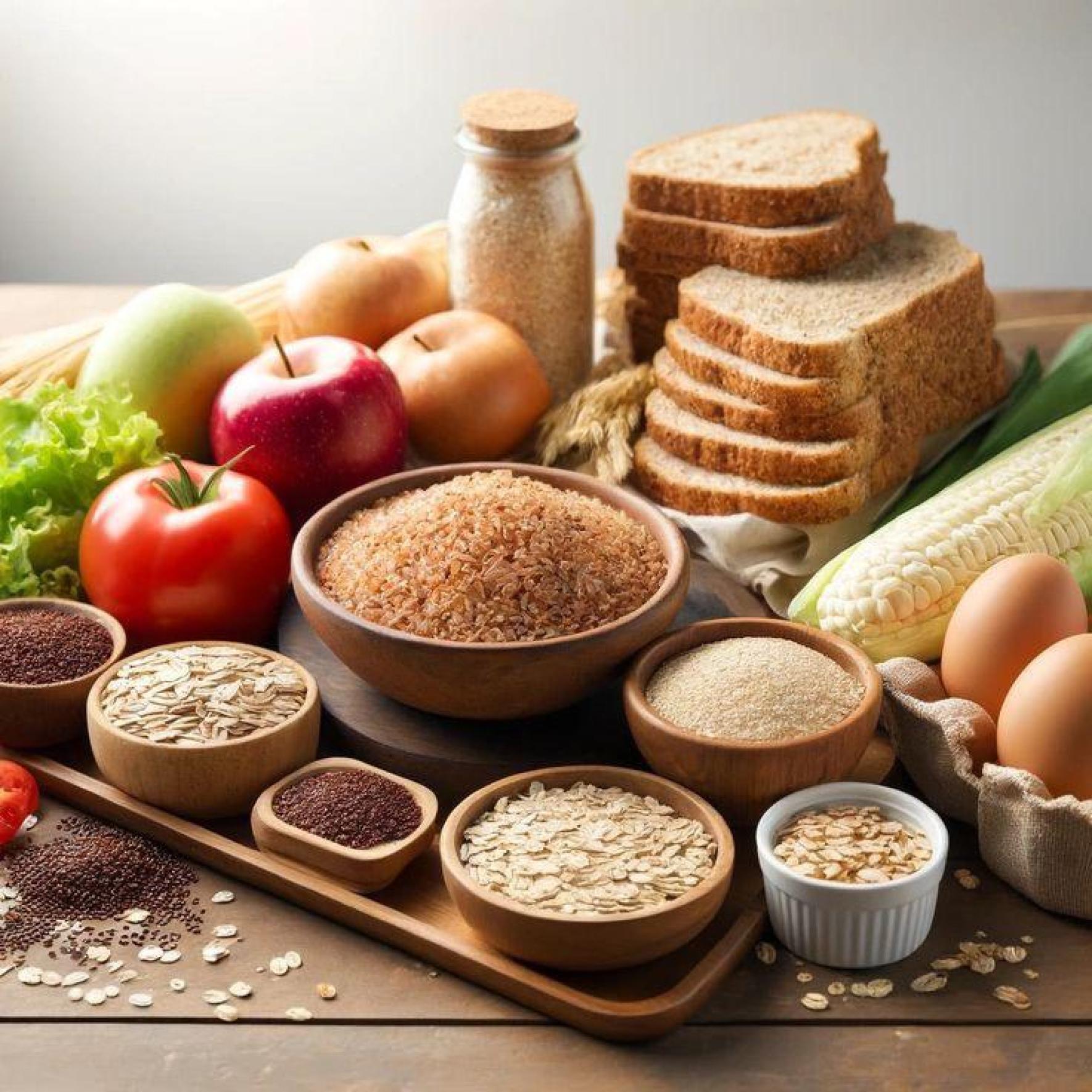Eat with Intention, Fuel with Purpose
(Written by: Assistant Lecturer Abdulla Aziz Ibrahim)
KTI
In the modern era, debates on nutrition strategies and diets, including the ketogenic diet, the philosophy of avoiding fruit, and aspects of sugar control, have become a central topic in the medical and nutritional communities. While efforts to improve health and manage weight are highly valued, a deep understanding of the physiological and biochemical foundations of how food affects our bodies is the basis for sound clinical decision-making and health guidance. This article sheds light on the importance of returning to natural foods from a physiological perspective, in contrast to the harmful effects of processed foods. Natural foods contain all the nutritional components but in different proportions, with a specific focus on the Glycemic Index (GI) and Glycemic Load (GL).
The Physiology of Food Digestion and the Effect of Nutrients
The human body is a balanced and dynamic system, and every nutrient has a specific effect on hormones, enzymatic reactions, and cell signaling.
Carbohydrates and Glucose Metabolism: The Role of GI and GL
Glycemic Index (GI): This is a measure of how much blood sugar rises after eating carbohydrates, compared to eating a specific amount of glucose or white bread. Natural foods like fruits, vegetables, and whole grains generally have a low GI (for example, a natural apple has a GI of 36, and a mango has a GI of 51). This is due to the presence of fiber, which slows down the process of digestion and glucose absorption.
Glycemic Load (GL): This is a more precise measure that considers both the GI and the amount of carbohydrates in the food (GL = GI × carbohydrate amount (in grams) / 100). One cup of rice (120g), which contains 33.5g of carbohydrates and has a GI of 58, has a glycemic load of 19.4. In contrast, three slices of watermelon (120g), which contain 9.1g of carbohydrates and have a GI of 72, have a glycemic load of only 6.5. This shows that GI alone is not enough to evaluate the effect of food on blood sugar.
The continuous consumption of foods with a high GL, especially refined sugar and processed complex carbohydrates (like white rice, white bread, boiled potatoes), leads to a rapid rise in blood glucose and excessive insulin secretion. This can lead to Insulin Resistance and, in the long term, Type 2 Diabetes Mellitus. The hormone insulin plays a key role in regulating glucose metabolism, and long-term resistance can have a negative impact on the function of the pancreas and fatty liver.
Low Glycemic Load Foods (Low GL Foods): Foods with a low GL (1-10) can be helpful for weight loss and maintaining good health. The consumption of foods low in both GI and GL not only maintains glucose and insulin balance but also helps control hunger and reduces cravings for sweets.
Lipids and Heart and Brain Health
Unsaturated Fats: Such as monounsaturated fats in olive oil and polyunsaturated fats like Omega-3 in fatty fish, play a key role in maintaining cell membrane integrity, producing steroid hormones, and reducing inflammation. Omega-3 is especially important for cardiovascular health and brain development.
Processed Fats: Such as trans fats and excessive saturated fats, can raise the level of LDL (low-density lipoprotein) cholesterol and lower the level of HDL (high-density lipoprotein), which increases the risk of atherosclerosis and heart diseases. They can also increase systemic inflammation and have a negative effect on insulin function.
Proteins and Tissue Building
Complete proteins, found in natural sources like meat, fish, eggs, and legumes, provide all the essential amino acids that the body cannot produce on its own. These are the foundation for building enzymes, hormones, neurotransmitters, and building muscles and tissues.
Micronutrients
Vitamins and minerals, which are abundant in natural foods, act as cofactors in the body\\'s biochemical reactions. For example, vitamin C is important for the immune system, and iron is necessary for oxygen transport in the blood. A deficiency of these substances can have a negative effect on overall health and physiological functions.
The Effect of Processed Foods on Physiological Mechanisms
Processed foods generally have characteristics that disrupt the body\\'s physiological balance:
Energy Density and Nutrient Deficiency: These foods are high in energy but low in nutrients (empty calories), which leads to overeating without providing the body\\'s nutritional needs.
Effect on Satiety Hormones: Excess sugar and unhealthy fats can affect hormones like ghrelin and leptin, which leads to a disruption in the regulation of hunger and satiety, resulting in weight gain.
Systemic Inflammation: Components like refined vegetable oils, which are rich in Omega-6, and excess sugar can increase inflammation at the cellular level, which is linked to many chronic diseases such as heart disease, diabetes, and certain types of cancer.
Effect on Gut Microbiota: Processed food that is low in fiber and high in simple sugars can disrupt the balance of the gut microbiota (dysbiosis), which has a negative effect on digestion, the immune system, and mental health (gut-brain axis).
The Islamic View and Body Physiology
In Islamic philosophy, the human body is considered a divine trust, and protecting one\\'s health is a duty. The verses and sayings that talk about eating lawful and pure foods, or say "Eat from the pure and beneficial things We have provided for you," contain a deep biological guidance. Everything that God has created is designed to be compatible with human physiology. Conversely, anything that has been processed and altered from its natural origin can have a negative effect on biological systems.

